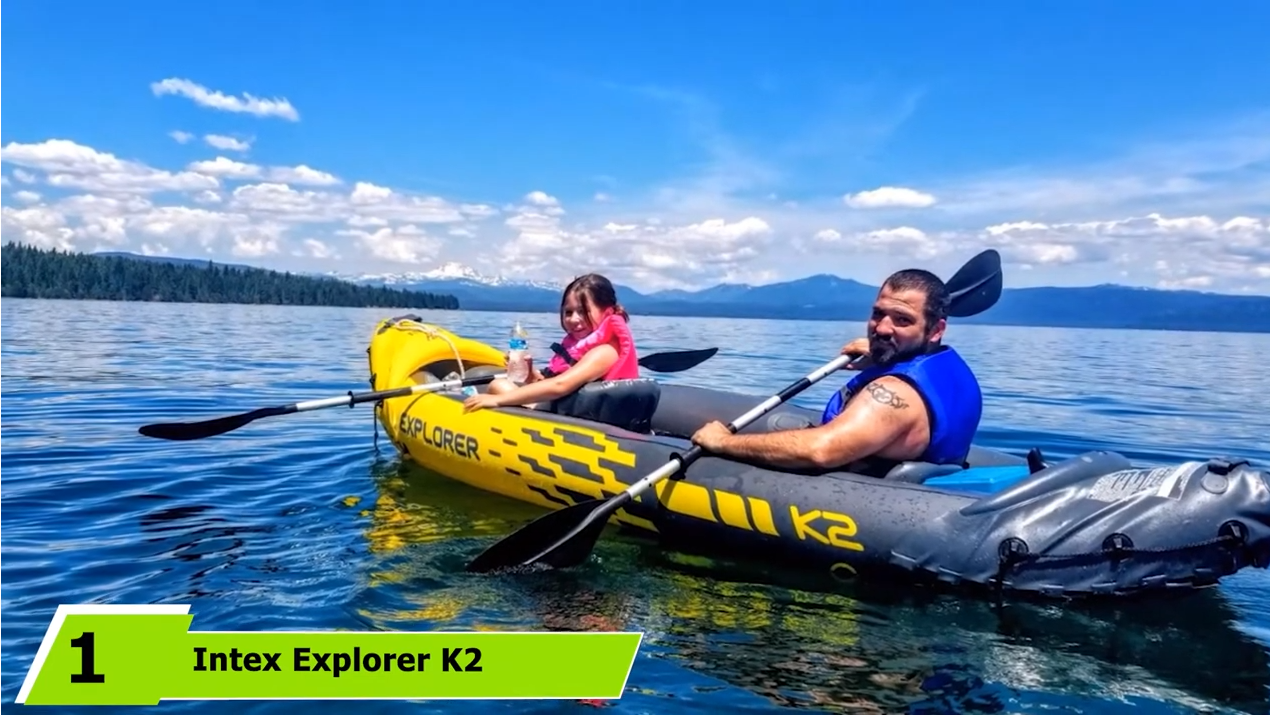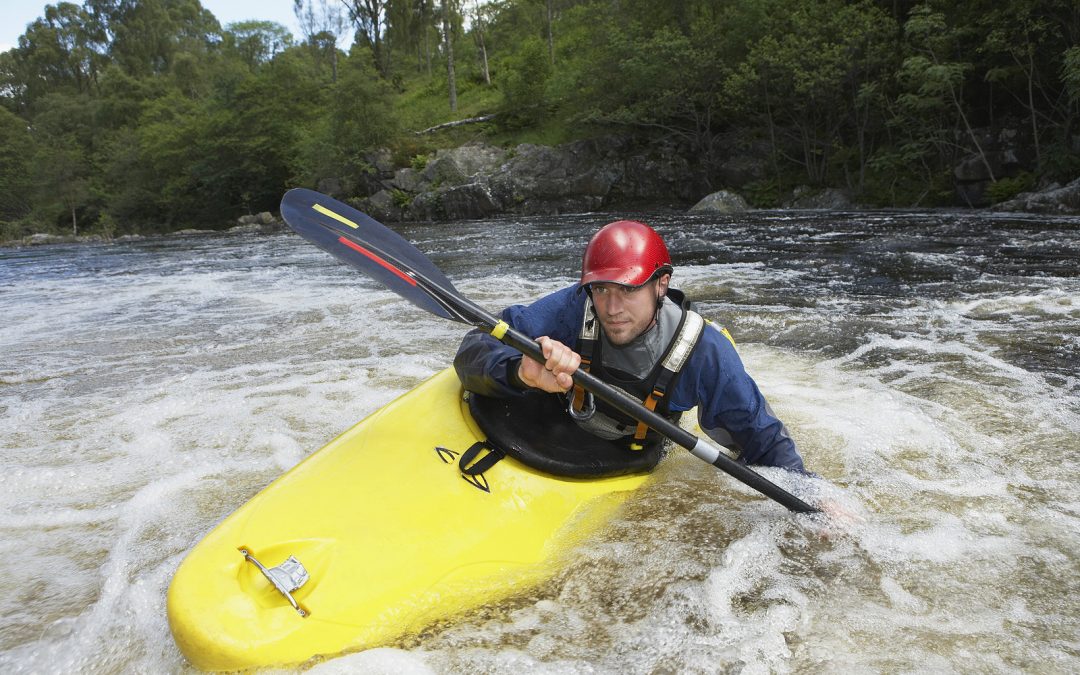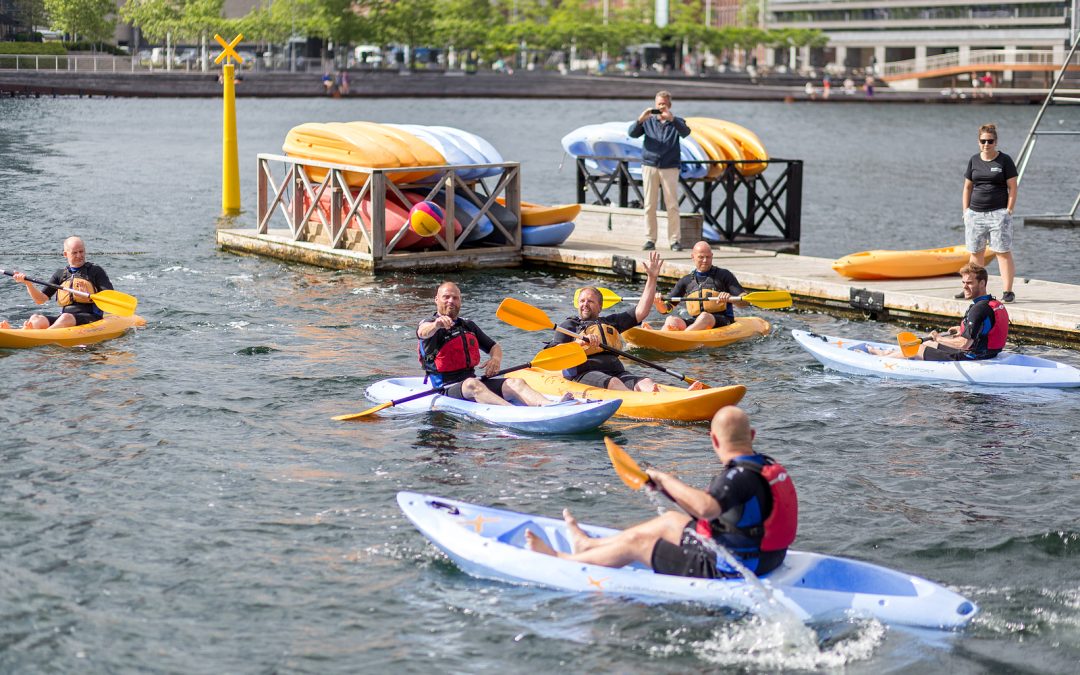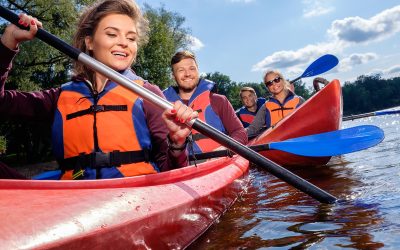When planning a kayaking tour, it’s essential to understand the refund policies of the tour operator, as it ensures a hassle-free experience in case of unexpected changes. Kayaking tour cancellation policies vary by company but generally include eligibility for a full refund, the impact of weather conditions, and rescheduling options. Awareness of these policies will help you make an informed decision when selecting a kayak tour and ensure a more enjoyable experience.

Weather can be unpredictable, and kayaking tour operators typically have procedures to deal with cancellations due to adverse conditions. Knowing how operators handle weather-related cancellations and your options for rescheduling or receiving a refund is essential. Additionally, always review the terms and conditions of your booking to determine the procedure for canceling or rescheduling a tour and whether any penalties may apply.
Key Takeaways
- Familiarize yourself with the cancellation policies before booking a kayaking tour.
- Understand how tour operators handle weather-related cancellations and rescheduling.
- Review booking terms and conditions for potential penalties and procedures for canceling or rescheduling your tour.
Understanding Kayaking Tour Cancellation Policies

Components of Cancellation Policies
When planning a kayaking tour, it’s essential to understand the cancellation policies in place. These policies outline the conditions under which a participant can receive a refund or exchange their booking. Typical components of a cancellation policy include:
- Timeframe: Most policies require participants to cancel a specific number of days in advance to receive a refund, such as 48 hours before the tour.
- Cancellation fees: Sometimes, a service charge or fee may be deducted from the refund amount, as Jacksonville Kayak Tours does with a $15/person fee.
- No refunds: Certain situations may result in no refund being provided, such as canceling less than five days before the tour or failing to attend any part of it.
- Weather-related cancellations: If a tour is canceled due to weather, an alternative option may be provided at a reduced rate, but no refund may be given once the tour has started.
Importance of Reading Policies Carefully
Before booking, participants must read kayaking tour cancellation policies to ensure they fully understand their rights and obligations. By being aware of the policies, participants can avoid unexpected fees or be unable to receive any refund. In some cases, consumer protection laws may offer additional safeguards for consumers, but it’s necessary to understand your contract and the specific terms and conditions of the tour operator.
Additionally, it’s essential to consider the impact of external factors, such as weather conditions or personal emergencies, on the ability to attend a tour. By understanding the cancellation policies, participants can make informed decisions about purchasing travel insurance or choosing a flexible booking option.
In conclusion, fully comprehending the cancellation policies associated with a kayaking tour is essential for participants. By knowing the policies and adhering to the guidelines, individuals can enjoy a hassle-free experience and protect their financial interests in case of unforeseen events.
Eligibility for a Full Refund
Conditions for Receiving a Full Refund
In the context of kayaking tours, a full refund typically occurs when a customer decides to cancel their tour reservation. The specific requirements for receiving a full refund depend on the individual tour operator’s cancellation policy. Generally, customers must meet certain conditions, such as notifying the operator within a specific timeframe. For instance, some operators may require cancellations to be made 48 hours in advance to be eligible for a full refund.
Here are common conditions for receiving a full refund:
- Cancellations made within the specified time window (e.g., 24, 48, or 72 hours before the tour)
- Adverse weather conditions or natural disasters that make conducting the tour unsafe
- The tour operator canceled the tour due to unforeseen circumstances
It’s essential for customers to carefully review the tour operator’s cancellation policy to understand their refund eligibility.
Implications of a No-Show
A no-show refers to a customer who fails to attend the booked tour without prior notice or cancellation. In most cases, no-shows are not eligible for a refund. Tour operators incur costs while preparing for the tour, and last-minute cancellations or failure to attend the tour may result in financial losses for the tour operator.
However, Some tour operators may offer a partial refund or the option to reschedule if the no-show is due to unforeseen events or emergencies. It’s important to note that these exceptions are at the discretion of the tour operator, and there is no guarantee that a person who is a no-show will receive any form of refund or credit.
In conclusion, to ensure eligibility for a full refund, customers should familiarize themselves with the tour operator’s specific cancellation and refund policies. Additionally, it’s recommended that any changes in attendance be communicated promptly to minimize losses for both the customer and the tour operator.
The Impact of Weather on Kayak Tours
Dealing with Inclement Weather Cancellations
Weather plays a significant role in kayak tours, and inclement weather can sometimes lead to cancellations. High winds, heavy rain, and unforeseen weather events may cause tour operators to cancel tours to ensure the safety of their participants. Tour operators usually have a cancellation policy to address such situations.
If a tour is canceled due to weather, customers can reschedule or receive a refund. For example, if a company cancels a tour because of unsafe conditions, they may offer customers a credit/rain check or a full refund. However, policies may vary between operators, so checking the specific terms and conditions before booking a tour is crucial.
Safety Concerns with Weather Conditions
Safety is a top priority for any outdoor recreational activity, including Kayaking. Operators often monitor weather forecasts, tide charts, and other relevant information to determine if conditions are safe for a tour. Here are a few weather-related concerns that could impact kayak tours:
- High winds: Strong winds can make kayaking difficult, particularly for inexperienced paddlers, as they can decrease stability and make navigating challenging.
- Rain: While it is possible to kayak in light rain, heavy rain can reduce visibility and increase the risk of hypothermia once combined with wind and cold temperatures.
- Thunderstorms: Active thunderstorms pose a significant risk due to potential lightning strikes and sudden wind gusts.
Operators will assess the potential risks and make informed decisions about proceeding with or canceling a tour. In the case of a canceled tour, it’s essential to understand your options and the refund policy offered by the tour company. By doing so, you can better manage your expectations and ensure a positive experience when booking a kayak tour.
How to Cancel Your Kayak Tour

Step-by-Step Cancellation Process
To ensure a smooth cancellation process for your kayak tour, it is crucial to follow these steps:
- Check the cancellation policy: Review the company’s specific cancellation policy before trying to cancel your booking. These policies vary, and some companies, such as Pictured Rocks Kayaking and Adventure Kayak of Cocoa Beach, have their policies listed on their website. Be aware of any deadlines or fees associated with the policy.
- Prepare relevant information: Gather all necessary details, including your booking confirmation number, the scheduled tour date and time, and contact information.
- Contact the company: Reach out to the company through the phone number on their website or via email. Make sure to do this within their specified cancellation time frame. For example, companies like Coastal Kayak have requirements like 48 hours for groups of 4 or more, while 24 hours for groups of 3 or fewer.
- Follow any additional instructions: Depending on the company’s policy, they may ask you to fill out a cancellation form or provide further information. Stay in communication and ensure all necessary steps are completed to finalize your cancellation.
Late Cancellation Implications
Failing to comply with a company’s cancellation policy may have several implications. Most companies, including Adventure Kayak of Cocoa Beach, will not provide a refund for late cancellations or no-shows. It is essential to adhere to the specified time frames to avoid forfeiting your payment.
Moreover, late cancellations may also affect the company’s ability to offer the spots to other customers. This could result in lost opportunities for additional bookings and revenue for the company. It is always best to provide as much notice as possible when canceling a kayak tour to mitigate any negative impact on yourself and the company.
Rescheduling Your Adventure

Options for Rescheduling
Sometimes, unforeseen circumstances may require you to reschedule your kayaking adventure. Most tour operators offer options to accommodate changes in plans. Typically, you can reschedule your trip within a predetermined time frame, 24 to 72 hours before the scheduled departure. For instance, Adventure Kayak of Cocoa Beach will call you to reschedule if the weather is deemed unsuitable for the tour.
When rescheduling, consider the following tips to ensure a smooth process:
- Check the tour operator’s policies – Each company has its own rules, so it is essential to understand their policies regarding rescheduling.
- Communicate as soon as possible. Inform the tour operator about your need to modify your trip as quickly as possible to secure a suitable alternative date.
- Be flexible with dates – Remember that specific days or times may be in higher demand, so flexibility is crucial when seeking a new tour date.
How to Request a Date Change
Requesting a date change for your kayaking tour can be done through different methods, depending on the tour operator’s requirements. Several companies provide online forms, email communication, or phone support to handle rescheduling requests.
For example, Adventure Kayak Florida offers a contact form and email address for inquiries. When requesting a change, it is advisable to include essential information such as your booking reference number, preferred new date, and contact details.
These guidelines will help you navigate rescheduling your kayaking adventure seamlessly and ensure a memorable experience on your new tour date.
Refunds Versus Vouchers
Circumstances for Receiving Vouchers
Tour operators may offer customers a voucher instead of a refund in certain situations. For example, when a kayaking tour is canceled due to weather conditions, equipment issues, or other unforeseen circumstances, a voucher can be provided as a suitable alternative to a monetary refund. This allows customers to reschedule their tour at a later date without having to bear additional costs.
Another reason tour operators may offer vouchers is when the customer cancels their reservation within a predetermined period before the departure date, as specified in the refund policy. In such instances, providing a voucher allows customers to reschedule their bookings and companies to minimize financial losses.
Advantages of Opting for a Voucher
There are several advantages when choosing a voucher over a refund:
- Convenience: A voucher allows customers to reschedule their kayaking tour without the need to go through a refund and rebooking process, which can save time and effort.
- Flexibility: Vouchers may have an extended validity period, giving customers more opportunities to reschedule their tour and select a date that works best for them.
- Support local businesses: Accepting a voucher can help small tour operators stay afloat during challenging times, thereby supporting jobs and preserving the local tourism industry.
- Possible discounts: Some tour operators may offer additional benefits or discounts for customers who accept a voucher instead of a refund.
In summary, a voucher can provide customers with a convenient and flexible solution when cancellations occur and help support local tourism businesses. Customers need to read and understand the refund policy of their kayaking tour operator to know their options and make well-informed decisions.
COVID-19 and Tour Cancellations
Special Conditions Related to Pandemics
Due to the unprecedented impact of the COVID-19 pandemic, many tour operators have updated their cancellation policies to address travelers’ concerns. In most cases, cancellation policies have become more flexible during the pandemic, allowing customers to change or cancel their bookings without incurring hefty penalties. For instance, it is now common for operators to offer future flight credits instead of refunds when tours get canceled due to COVID-19.
It is essential for customers to carefully review the updated cancellation and refund policies of their chosen tour operator, as they may vary from one company to another. Additionally, it is recommended to consider purchasing travel insurance that covers pandemics, as this can offer additional protection and peace of mind during these uncertain times.
Health and Safety Protocols Affecting Tours
In response to the COVID-19 pandemic, tour operators have adopted stringent health and safety measures to protect their customers and staff. These protocols are designed to minimize the risk of infection while still providing a memorable and enjoyable experience. Some standard safety measures implemented by kayak tour companies include:
- Frequent sanitization of equipment and shared spaces
- Social distancing guidelines to keep everyone at a safe distance
- Mandatory face masks for staff and customers
- Health screenings and temperature checks before the tour
By following these safety measures, tour operators can significantly reduce the risk of transmission and ensure that their customers have a safe and enjoyable kayaking experience. However, travelers must stay informed about the latest COVID-19 restrictions and guidelines in their destination, as these may change rapidly and impact their tour plans.
Financial Considerations for Refunds
How Refunds Impact Cash Flow for Tour Operators
Refunds can have a significant impact on a tour operator’s cash flow. When customers request refunds, the operator must return a portion or the entire amount they initially received. This reduces the operator’s available funds, which can affect their ability to pay expenses, invest in new equipment, or expand their business.
One way to mitigate the impact of refunds on cash flow is by implementing a transparent and fair refund policy. For instance, some tour operators offer free cancellations up to 24, 48, or 72 hours before the departure date. This allows them to rebook and avoid lost revenue.
It’s also essential for tour operators to effectively manage their cash flow by tracking income and expenses. This can be done through proper invoicing, accounting software, and regular financial reporting. By staying organized and financially aware, a tour operator can better predict the impact of refunds and make informed decisions.
Understanding Deposits in the Context of Cancellations
When booking a kayaking tour, customers may be required to pay a deposit, usually a percentage of the total tour cost. The deposit serves as a financial commitment from the customer and reduces the risk of last-minute cancellations for the tour operator. In this case, if a cancellation occurs, the operator can retain the deposit, providing some level of compensation for the lost opportunity.
Depending on the tour operator’s refund policy, deposits can be non-refundable or partially refundable. For example, a policy might state that deposits are non-refundable but can be applied to future bookings if the customer cancels within a specified timeframe. Alternatively, the policy could require customers to forfeit their entire deposit if they cancel within a particular window, such as less than 48 hours before the tour.
In summary, while refunds can affect a tour operator’s cash flow, implementing a clear refund policy and requiring deposits can help mitigate the financial impact. By understanding the relationship between refunds, deposits, and cash flow, tour operators can maintain a healthy business and continue providing memorable customer experiences.
Selecting the Right Kayak Tour for an Enjoyable Experience
When planning a kayaking adventure, finding a suitable tour for an enjoyable and memorable experience is essential. This section will discuss factors to consider when booking a kayak tour, including cancellation policies and expectations from the tour itself.
Considering the Cancellation Policy When Booking
Booking a kayak tour typically involves checking the cancellation policies of various providers. Different operators have varying policies, so it’s crucial to know what to expect in case of cancellation:
- Adventure Kayak of Cocoa Beach requires giving notice 24 hours before the tour; otherwise, there is no refund.
- Pictured Rocks Kayaking offers a refund or an exchange up to 48 hours before the scheduled tour time.
- Coastal Kayak requires groups of 4 or more to cancel at least 48 hours before the tour, while groups of 3 or fewer must revoke earlier.
Understanding these policies is critical to avoid financial loss and disappointment due to unforeseen events.
What to Expect from Your Kayak Tour Experience
Once you’ve booked a suitable tour, it’s time to discover the excitement and beauty of your destination. Here’s what to expect from a typical kayak tour experience:
- Safety Briefing: Before heading out on the water, knowledgeable guides provide a safety briefing and demonstrate proper paddling techniques.
- Guided Exploration: Throughout the tour, experienced guides lead participants along scenic routes, pointing out interesting facts about the local flora and fauna.
- Ample Opportunities for Rest: Expect regular stops for rest and photos, allowing guests to enjoy and capture their surroundings fully.
- Duration: Most kayak tours last 2 to 4 hours, depending on the company and route selected.
To ensure an enjoyable and hassle-free experience, participants should familiarize themselves with the tour provider’s rules and regulations and arrive appropriately dressed and equipped for their adventure on time.
By considering both the cancellation policies and the experience kayak tour providers offer, travelers can confidently select the best option to immerse themselves in an unforgettable kayaking experience.
Pre-Tour Preparations and Policies

Required Documents and Waivers
Before embarking on a kayaking tour, participants must complete the necessary paperwork to ensure a safe and enjoyable experience. This often includes signing a liability waiver acknowledging potential risks associated with the activity. Waivers are legally binding documents requiring participants to disclose pertinent medical information and emergency contact details. Sometimes, a tour operator could also ask for proof of experience or certification for advanced tours. Hence, it is crucial to thoroughly read and understand the contents of the waiver before signing.
What to Bring and What Not to Bring
Proper preparation is critical to a comfortable and enjoyable kayaking excursion. Participants are advised to wear attire suitable for water-based activities, such as quick-drying or swimwear, and to avoid loose or restrictive garments. Bringing along necessary personal items, such as sunscreen, sunglasses, a hat, a water bottle, and a waterproof bag for electronics, can enhance the overall experience.
| Items to Bring | Items to Avoid |
|---|---|
| Quick-drying clothing or swimwear | Loose or restrictive garments |
| Sunscreen | Alcohol |
| Sunglasses | Valuable items |
| Hat | Excess equipment |
| Water bottle | |
| Waterproof bag for electronics |
Safety is of utmost importance when participating in a kayaking tour. Tour operators typically provide essential safety equipment, such as life jackets and helmets, and require participants to wear them at all times during the tour. In addition, tour guides will often instruct on proper safety practices and paddling techniques.
It is essential to remember that consuming alcohol before or during a kayaking tour is not permitted, as it can impair coordination and judgment, increasing the risk of accidents. Adhering to the tour operator’s guidelines and following the tour guide’s advice can help ensure a safe, enjoyable, and memorable kayaking experience.
Booking and Reservations Details

How to Secure Your Spot on a Kayak Tour
When planning a kayaking tour, securing your spot through a booking process is essential. Most tour providers accept reservations online, over the phone, or in person. To confirm your booking, a deposit is often required. This deposit ensures your spot is reserved and helps tour providers manage their schedules.
Before finalizing your reservation, read and understand the provider’s refund policy. These policies often provide clear guidelines on the timeframe allowed for cancellations and any associated penalties or fees. For instance, Coastal Kayak requires groups of 4 or more to cancel at least 48 hours before the scheduled touro receives a refund.
Understanding Reservation Conditions
It is crucial to be aware of the reservation conditions set by the tour provider. These terms may vary, but most providers establish a set of rules, including:
- Deposit: The amount needed to secure your booking.
- Cancellation policy: The specific requirements for cancellations, changes, and refunds.
- Minimum participants: The minimum number of people required for a tour.
- Weather conditions: Circumstances under which a tour may be canceled or rescheduled due to weather.
Remember that each tour provider may have additional conditions or even unique rules. For example, Get Up and Go Kayaking indicates that individual locations might have their cancellation or late policy. Always take the time to familiarize yourself with these conditions to avoid unexpected fees or inconveniences.
Frequently Asked Questions

What is the standard procedure for obtaining a refund if a kayaking tour is canceled?
The standard procedure for obtaining a refund varies between kayaking tour providers. It is essential to read the company’s refund policy before booking. The policy is often found on their website or in the booking confirmation email. Generally, when the operator cancels a tour, customers are eligible for a full refund or an option to reschedule for a later date.
How far in advance must I cancel my booking to be eligible for a full refund?
The cancellation policy for kayaking tours varies by company. Some tour providers may offer full refunds if you cancel within a specified time frame, such as 48 hours before the tour start time, while others might have stricter cancellation policies. Review your tour provider’s cancellation policy, typically found on their website or booking confirmation email, for specific details.
Are there any circumstances under which a kayaking tour may be non-refundable?
Some kayaking tour providers might have non-refundable circumstances outlined in their refund policies. This could include booking discounted or promotional tours, group bookings, or cancellations made too close to the tour start time. Again, it is crucial to review the refund and cancellation policy of the provider before confirming your booking.
Is it possible to get a refund for weather-related cancellations?
Weather-related cancellations depend on the tour provider’s cancellation policy. Many companies may offer full refunds or options to reschedule your tour if they decide to cancel it due to adverse weather conditions. It’s essential to check the cancellation policy of your specific tour provider, as some may have different approaches to handling weather-related cancellations.
What are the steps I should follow if I need to request a refund from a kayak rental service?
To request a refund from a kayak rental service, follow the steps outlined in their refund policy. This could include contacting them by email or phone, providing your booking reference number, and explaining your cancellation reason. Ensure that you are familiar with their refund policy, as each company has different requirements, time frames, and possible transaction fees.
Can I receive a credit for a future tour instead of a refund?
Some kayak tour providers may offer the option to receive credit towards a future tour instead of a full refund, especially when canceling within their specified time frame. It’s essential to review the cancellation and refund policies the tour operator provides to understand if receiving credit towards a future tour is a viable option.
Conclusion

In the kayaking tour industry, refund policies vary among tour operators. Some factors influencing the policies include the group size, the cancellation time, and whether rescheduling is an option. It is essential for both tour operators and customers to clearly understand and communicate their expectations regarding cancellation and refund policies.
Tour operators should design refund policies to balance customer needs and business sustainability. Some operators adopt a sliding scale refund system, offering full refunds for cancellations made well in advance and reduced refunds as the time to the tour decreases. This method can help mitigate losses while still providing some flexibility to customers.
Customers planning a kayaking tour should know that some operators require a minimum notice period to cancel and receive a full refund, often 48 hours in advance. Cancellations made with less notice may result in partial refunds or credit towards rescheduling the tour.
Both parties must communicate clearly and early in the booking process to ensure they know the cancellation and refund policies. Doing so can help avoid misunderstandings and conflicts once a tour is booked.
By maintaining clear communication, reasonable refund policies, and a customer-first approach, kayaking tour operators can build trust and positive experiences, ultimately leading to a thriving business and satisfied customers.











